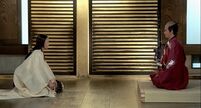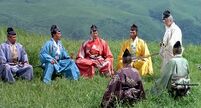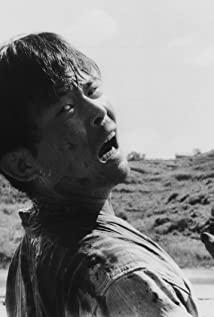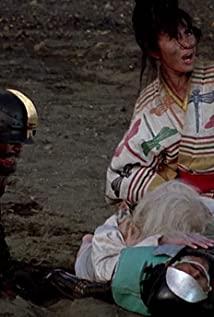Akira Kurosawa had a profound impact on me when I met in high school. Roughly speaking, it probably deepened my love for movies, epics, and the concept of "camera movement", paving the way for the hidden resonance of Mahler in life, and From the perspective of humanities and religions, "chaos" extends to the interest and understanding at the level of physics. I have seen all of his representative works, but most of them are not marked. It is more appropriate to commemorate it from "Ran".
Recalling that when I was 16 years old, I was shocked by this work to solve puzzles in my twilight years and still felt incredible. For this work, my tendency to always focus on "form over content" is obviously inappropriate. Because no matter how much praise is given to Akira Kurosawa's consistent and ultimate expressiveness of his images, it will be repeated. The mastery of the concepts of motion, distance, and tone has been transformed into the realm, and the double tragic tension of Shakespeare and Japanese Noh is really the pinnacle of epic style. In addition to the surprise, the direct use of the fear of death at the end of Mahler's "Song of the Earth" in Toru Takemitsu's soundtrack makes people feel ashamed of their understanding of death. The grand oriental color in the dark line also surfaced. "The King" is just an introduction, and its similar archetypal stories have happened countless times in the land of ancient Confucian cultural circles. From the high level of Buddhism to the reflection on the destruction and suffering caused by the lust for power and war in the world, it is so heavy and profound, but facing chaos and nothingness seems to be no confusion, but it only increases the surface reconciliation. In my opinion, the pessimistic thoughts generally contained in the creation of later years seem to be an individual limitation, but Akira Kurosawa has risen to a divine overlook, and the last movement of Mahler's Ninth Symphony has not reached such a state. . Maybe it will change when you get older
As a Chinese audience, "Chaos" may resonate more than other countries. The final movement of "Song of the Earth" is derived from "Farewell" by Wang Wei, a poet, but the indirect quotation from a Japanese film after a thousand years is like a causal cycle. In addition to the father and son cannibalism and chaotic nothingness that happened on similar soil, there is probably also "the inhumaneness of heaven and earth and all things as cud dogs".
(I can't write a short review, so it's very fragmented. The picture is from the close-up of the cloud in the movie, and I think of the sentence "Farewell" in the title)
View more about Ran reviews











